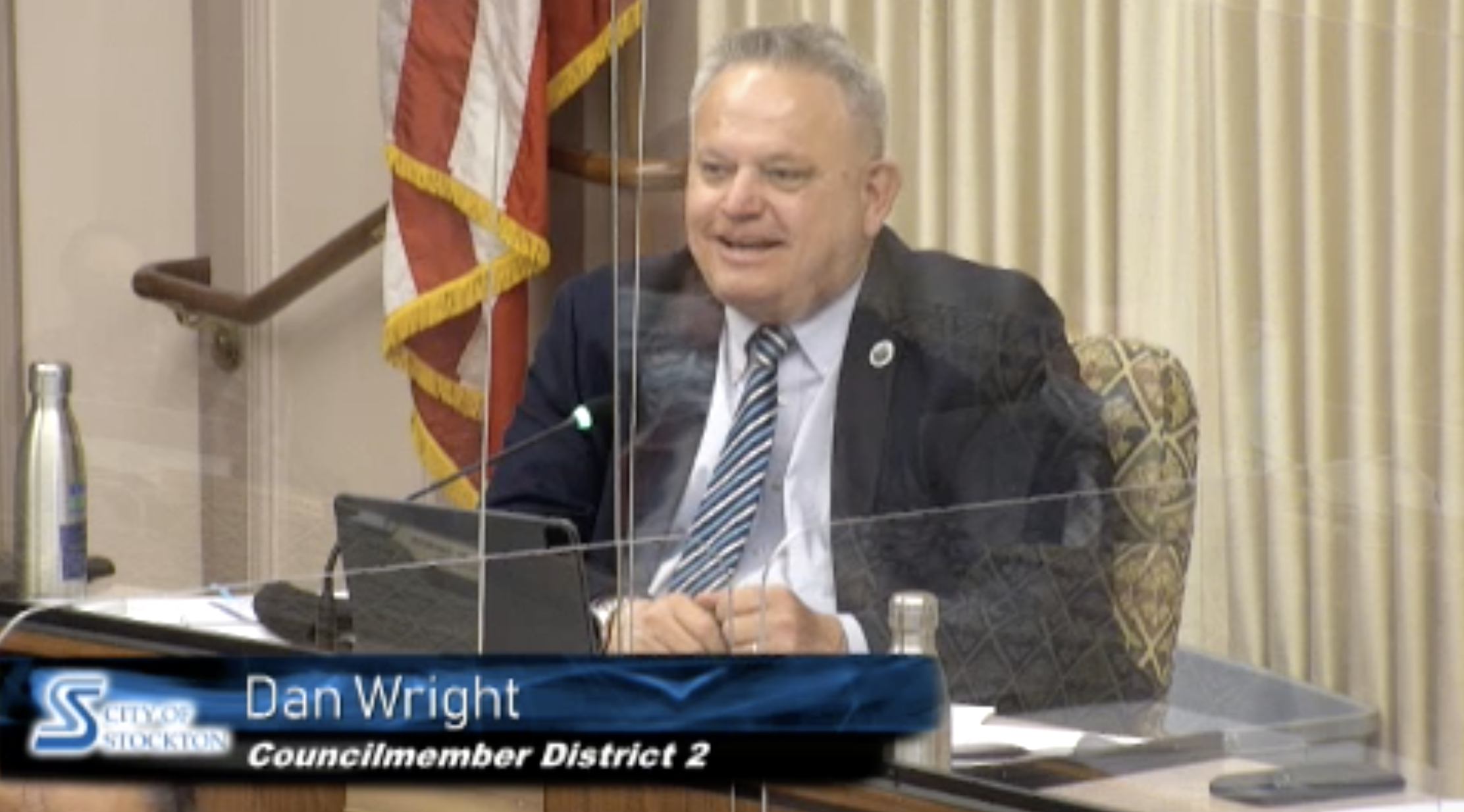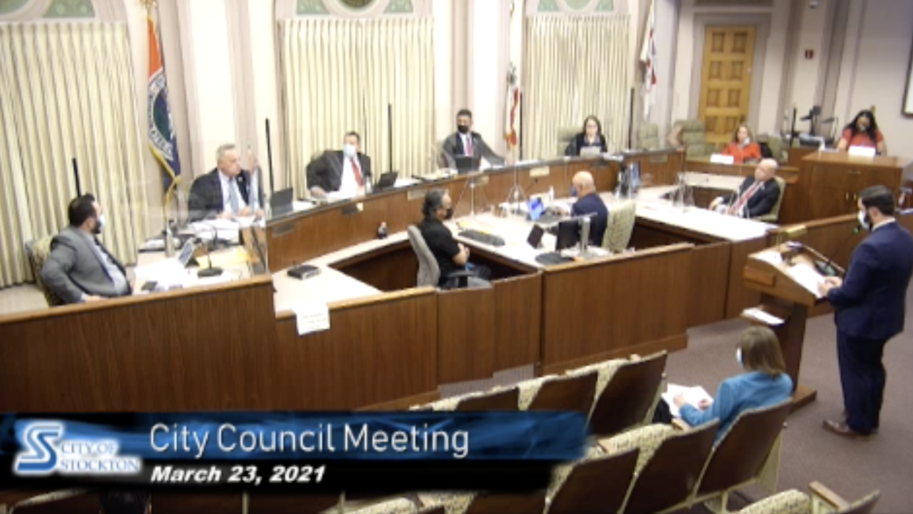On March 23, Stockton’s City Council received an informational presentation on a feasibility study examining the opportunities and economic outlook for launching a Community Choice agency.
A Community Choice Energy program, or CCA, would allow the City to buy electricity at competitive rates on behalf of Stockton residents and businesses and reinvest net revenues back into the community to meet specific needs over time. PG&E would continue to provide distribution services through its power lines, while a governing board of local elected officials would be deciding what electricity sources residents buy from, developing local energy programs, and setting rates for power generation.
Eighteen people spoke in favor of the City Council continuing exploration after March 23.
Citing the feasibility study, speakers pointed out that the City would be drawing in a $100 million annual revenue stream (the bills we currently pay to PG&E) to procure from cleaner energy sources at competitive rates on behalf of Stockton residents and businesses. Because of CCA’s ability to consistently purchase wholesale electricity at a lower cost than the investor-owned utilities, the City would be able to generate reserve funds that could be reinvested back into the community as lower rates, energy efficiency programs, local renewable energy development, and more.
Because they are local, CCAs offer more transparency and opportunities for community input over how power generation revenues are spent. Residents would be automatically enrolled as customers of the new CCA, but would also have the choice to opt out at any time and have PG&E continue to purchase their electricity.
Notably, the feasibility study has indicated that the City of Stockton would likely be able to offer its residents and businesses power that is priced at or a few percent lower than that offered by PG&E.
Learn more about the numerous benefits a CCA could bring to Stockton here.
City council members mulled potential governance options on March 23, including whether the City should start a CCA on its own, establish a CCA with other cities, or join an existing one. Great questions arose over financing start-up costs, financial viability, and staff capacity requirements. We are hoping that answers to these questions and more will be brought back to the Council as they continue to pursue the evaluation.

District 2 Council Member Dan Wright, who has been advocating for establishing a CCA in Stockton since 2016, shared his support for the program to address the impacts of climate change and bring 300+ living wage jobs to the area. Citing the study, Council Member Wright highlighted that the City would be able to become carbon-free approximately 15 years earlier than the current provider.
“Stockton has an extreme number of issues that we have to deal with,” Council Member Wright said. “We have to do something transformational to change what this city is going through. That’s what this would be. This would be a transformational change at a minimal risk to save the future of our children … I hope we’re going to bring back options for us to consider in the future.”
Multiple council members cited air pollution and its negative health outcomes among the suite of environmental impacts on Stockton residents, especially those in low-income and communities of color. At the local level, CCAs improve air quality by driving adoption of electric vehicles and charging infrastructure via incentive programs. To address air pollution at the statewide level, CCAs are able to procure from cleaner energy sources that don’t emit harmful pollutants in low-income neighborhoods and communities of color.
District 6 Council Member Kimberly Warmsley highlighted the potential benefits of CCA to prioritize positive health outcomes for residents.
“We need to take into account health considerations when we look at the analysis of why this is a great opportunity for this community,” Council Member Warmsley said.
In moving forward with its own CCA, Stockton would be taking the same steps as 170 California cities and 20 counties. The state’s 24 CCAs have collectively invested in 6,000 megawatts of new renewable energy infrastructure, creating thousands of construction jobs in the process. They’re now serving over 11 million customers with cleaner energy at rates competitive with or lower than the existing utility in their service areas.
It’s for these reasons and more that we hope the City Council will continue to pursue Community Choice Energy.


